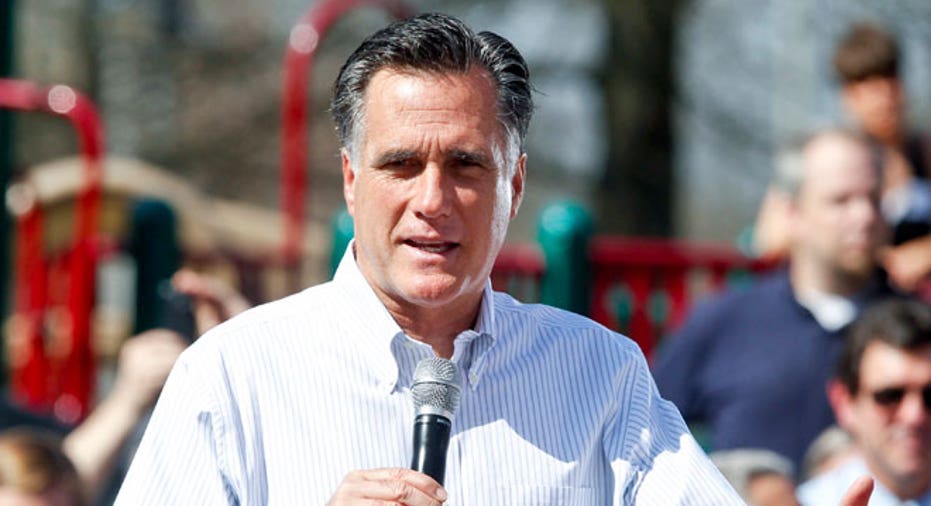A Message to Team Romney From U.S. Entrepreneurs

Will he or won’t he? This is the water cooler question of the moment. Will Mitt Romney run for president in 2016?
As a writer and policy advocate for the greater small business community, the recent speculation about Romney has reminded me of my complete mystification with his 2012 campaign. Last time around, Romney was reluctant to talk about his accomplishments—not in business which are supposedly boring and suspect to a broad electorate, but his accomplishments as a business founder. Why?
I’m guessing that some advisor said, “Mitt, don’t emphasize your entrepreneurial accomplishments because we don’t want to remind voters that you are wealthy.”
Or maybe his advisors thought that co-founding a “private equity” business was too difficult for the American public to understand, or worse, that reporters will twist around the investment activities of Bain Capital to highlight the amount of job losses that occur when businesses change ownership or are consolidated.
And guess what? It happened anyway. Because Romney never took a strong stand on his role at Bain Capital and positioned himself as a successful business founder he became the distrusted corporate blue suit. He was always on the defensive when he didn’t need to be.
Now let’s look at the real world that Romney’s advisors didn’t see. It’s my world—the world of ambitious entrepreneurs, freelancers and small business owners. This world represents over 95 percent of all businesses in the United States. We’re a growing, diverse bunch of all ages and backgrounds.
In my world, men and women who start something, build something, and bank something in a big way are admired and often envied for our courage to shape our own economic destiny. We bet on ourselves, often when no one else does. We are determined, opportunistic, independent-minded and work incredibly hard to build better lives for our families. And we want to make money—sometimes serious money. The many letters to this column are clear. The more we invest our heart, soul and savings into our companies, the more we want to be rewarded for the risks we are taking.
Would most business owners I work around be thrilled to earn over $250,000 a year from a business they created? Oh yes. And would most business owners love to build up the financial value of their business so that it might one day be bought out by a private equity fund like Bain, or corporation, or go public? Yes, indeed. This mindset is not just in Austin and Boston, but battleground cities like Cleveland, Denver and Charlotte.
Still, while business is fundamentally about creating cash, entrepreneurs are driven emotionally and intellectually to innovate and make a difference. Some want to be global game-changers while others just want to be respected game-changers within their local communities.
It also doesn’t matter so much what we are creating. It can be burger chains, craft beer, social media sites, cupcake cafes or an investment fund. What matters most to us is that we set a business goal, go after it, and succeed. Romney did this. He took an idea and made it into something commercially viable.
Notice that I didn’t say that he “started with nothing and made it into something.” I find that the starting point of privilege matters less than how startup entrepreneurs seize opportunities along the way.
Team Romney also didn’t get that even the most ardent Democratic entrepreneurs would eagerly sit down with Romney the highly successful business founder and ask questions about how he did it, the mistakes he made along the way, and how he and his staff persevered through problems. Shared passions always trump politics. Entrepreneurs would listen because they know he faced the ultimate beat-the-clock startup challenge of bringing in enough new customers to sustain a business before it was out of business. His story just gets even better because entrepreneurship in America is the only sector of the economy that creates net job growth and can lift people out of poverty or into the Forbes 400.
If Romney does run for President again, let’s hope he has a smarter set of advisors in his inner circle. This advice works for Hillary, too. If you want to succeed this time around, don’t try to connect with voters by hinting to your financial woes when you first left the White House. You are a one-percenter, just like Romney is a one-percenter. Embrace it.
The bigger point is America isn’t about the 1% or the 99%, it’s about leading 100% of the nation forward in a prosperous way. This is how the greater small business community thinks. We are doers, not whiners. We don’t understand trickle down, just building up. We also represent a lot of voters who aspire to do something meaningful in their work lives.
Which party will get it right in the months ahead? Which candidate will understand that this big voting bloc needs more than a few photo ops in Iowa to win our devotion?
Susan Schreter is a veteran of the venture finance community and entrepreneurship educator. She is the author of Start On Purpose which provides specific action steps to start a new business, attract investors, and make any new business idea bigger, better and more lucrative.



















